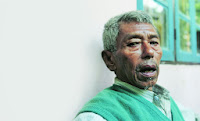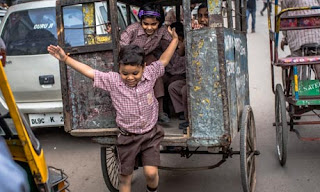New Education Policy: What does it say about language?

New Education Policy India In 2015, the Ministry of Human Resource Development (MHRD) initiated a consultation process for the formation of the New Education Policy (NEP). The full draft plan has not yet been released to the public but an input report has been published. The report includes several references to language including multilingual education. Image Credit: Flickr/ Yorick_R (CC BY 2.0) The background of the New Education Policy (NEP) and the reason for the slow process are given in the article published earlier this month India’s New Education Policy: Creeping 'Saffronization'? The aim of the new policy was "to respond to the 'changing dynamics of the population’s requirement with regards to quality education, innovation and research' and help the country move towards becoming a knowledge superpower.". The Diplomat reports that the process was slowed down because of saffronization acquisitions.








